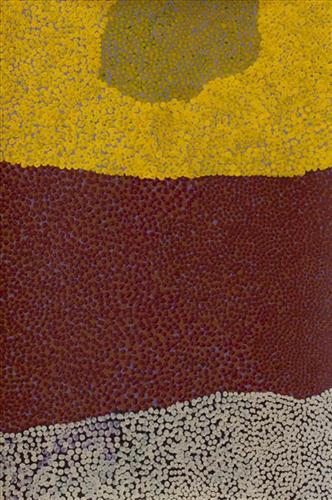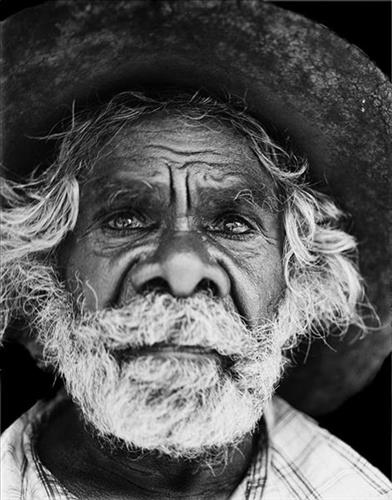111581940950
Kulyakartu
This painting depicts Kulyakartu, Wokka’s ngurra (home Country, camp). Kulyakartu is located in the far north of the Martu homelands, near the Percival Lakes region of Western Australia’s Great Sandy Desert. Wokka has extensive knowledge of the Country in this region, where he grew up living traditionally during the pujiman (traditional, desert dwelling) days with his family. Kulyakartu is mostly grass Country where there is very good hunting. In particular parnajarrpa (goanna), wild cats, and lunki (witchetty grub) are found in abundance here. There is no permanent water source in Kulyakartu, so Wokka’s family would walk here annually following the wantajarra (wet season). During the yalijarra (hot, dry months) they would head south again to more permanent water.




